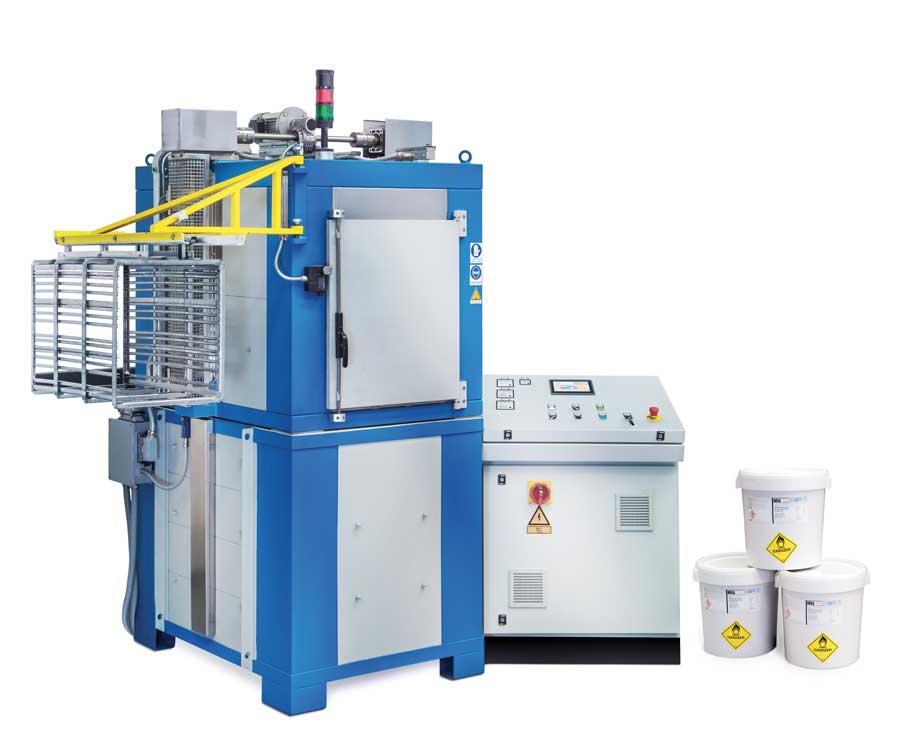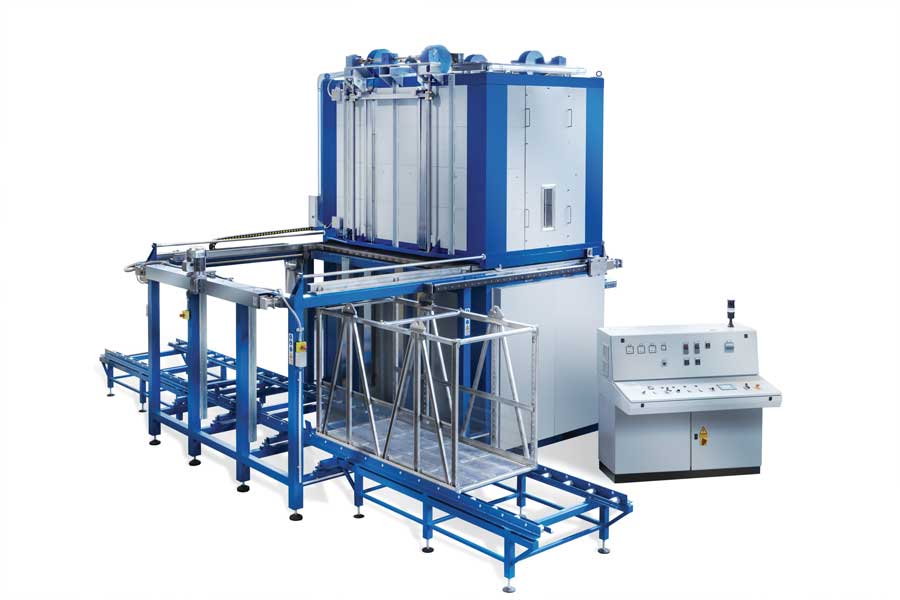R.C.N. Solutions knows very well that the chemical tempering of glass has several advantages and different applications, and is the ideal solution for applications where thin glass is required. These applications are not only for flat glass but also for small objects, as we will see in this article.
 |  |
As a historical and experienced manufacturer of glass machinery, R.C.N. Solutions knows very well that the chemical tempering of glass has several advantages and different applications. Chemical tempering is, in fact, preferred for all those applications where thin glass is demanded, a limitation that thermal tempering furnaces cannot overcome, even if some manufacturers have recently extended thermal tempering to thin glass as well. The resulting optical quality is, however, far from that of chemical tempering, since the chemical process does not provoke distortion on the glass, not such a minor detail, and not the only benefit.
THE CHEMICAL TEMPERING PROCESS
The chemical process consists of submerging the glass into fused potassium salt bath and exposing the glass to an ion exchange process, at a temperature of 450°C. The process provokes a space reduction between the glass particles that are compressed by the bigger size of the potassium ions. the glass surface is under compression (300/400 n/mq) while the core is in compensating tension.
Although the chemical tempering requires more time process than the thermal one, the advantages are significant: glass chemically tempered can be processed later – drilling, cutting, edging, polishing, sandblasting; curved glass can be also tempered, special curves in particular. the absolute flatness is essential for the lamination process and the lack of distortion is a crucial matter in some architectural projects too. Recently, very thin chemically tempered glass – like a sheet of paper – has been used for façades and especially for curved façades after undergoing cold bending.
NOT ONLY LIMITED TO FLAT GLASS
Yet, the chemical tempering of the glass is not only limited to architectural-, automotive, or aircraft industries, but it is also widely used for other scopes, such as for small objects such as bottles for perfumes, syringes, lenses, tableware, smartphones, etc. It follows that the chemical tempering system can satisfy numerous industries, covering most of the requirements coming from glass projects.
For these reasons RCN has, in cooperation with an expert with more than 40 years experience in manufacturing chemical tempering plants, developed and manufactured its chemical tempering line under the brand ‘Riva by RCN’, and it is not by chance that international companies such as AGC, Europtech and Luxottica have chosen RCN as their supplier.

A PERFECT MATCH WITH OTHER RCN MACHINERY; IN ANY SIZE
This new line perfectly matches other RCN machinery, thus combining a full production ‘team’ line: bending, tempering and lamination. The winning solution responds to the latest market requirements, but also grants access to several different applications, giving products the high added value customers are looking for.
The real strength of RCN is, however, its ability to manufacture any size customers require, with tailor-made projects.
RCN’S PRODUCT RANGE
R.C.N. Solutions is more than just chemical tempering, it is also machines for flat glass processes such as bending and lamination. Production layouts including bending, chemical tempering and lamination are, especially, a winning combination to process glass and have a final product responding to safety requirements.
RCN’s product range also includes the REVA BF brand of laminating interlayers, manufactured as per specific chemical formula and selected raw materials.

RCN Solutions Srl
www.rcnsolutions.it






